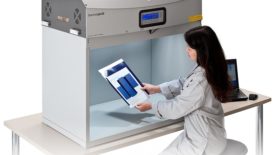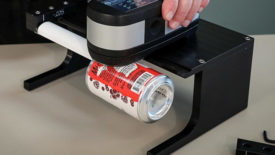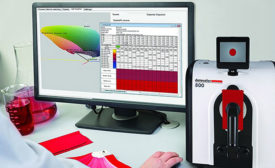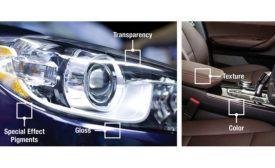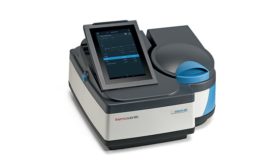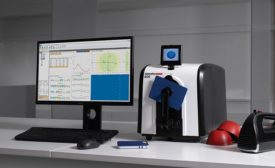Home » Keywords: » Spectrophotometers
Items Tagged with 'Spectrophotometers'
ARTICLES
Advancements in digital color measurement technologies and cloud-based software have transformed color quality control, enabling greater accuracy, efficiency, and sustainability, while automation and circular economy principles are driving further innovation in the industry.
Read More
Color Measurement
Is Your Color Workflow Resilient for Today’s Supply Challenges?
Capturing and analyzing color data can help identify areas for improvement.
October 1, 2022
Test & Inspection
Shining A Light On Color Quality Control
Monitoring color during the entire production process can help manufacturers identify color drifts before they become a problem.
March 8, 2022
Getting Color Right (It's Trickier Than It Sounds)
What you need to know for effective color management.
January 6, 2021
Color Management 101: The Latest Technology and Techniques
Whether you are first introducing color control to your quality process or you are managing an existing framework, here’s what to know.
April 1, 2020
Color Measurement 101: The Basics of Managing Color throughout Production
Whenever accurate and consistent color is critical, brands and their suppliers rely on color measurement hardware.
February 15, 2019
How to Determine the Appropriate Mobile or Handheld Metal Analyzer for On-the-Spot Metal Testing Tasks
Quality-conscious organizations can’t afford to hand off responsibility for metals verification.
November 1, 2018
Addressing the Quality Control Challenges of Effect Finishes
New measurement technologies are coming on the market to better control color and appearance.
June 1, 2018
The Lie of the Eyes
Spectrophotometers and colorimeters take the guesswork out of color measurement.
September 1, 2017
EVENTS
Webinar
4/2/25 to 4/2/26
Contact: Meg K.
How to Optimize Color Quality Inspections to Create a Sustainable Workflow
Stay in the know with Quality’s comprehensive coverage of
the manufacturing and metrology industries.
eNewsletter | Website | eMagazine
JOIN TODAY!Copyright ©2025. All Rights Reserved BNP Media.
Design, CMS, Hosting & Web Development :: ePublishing
